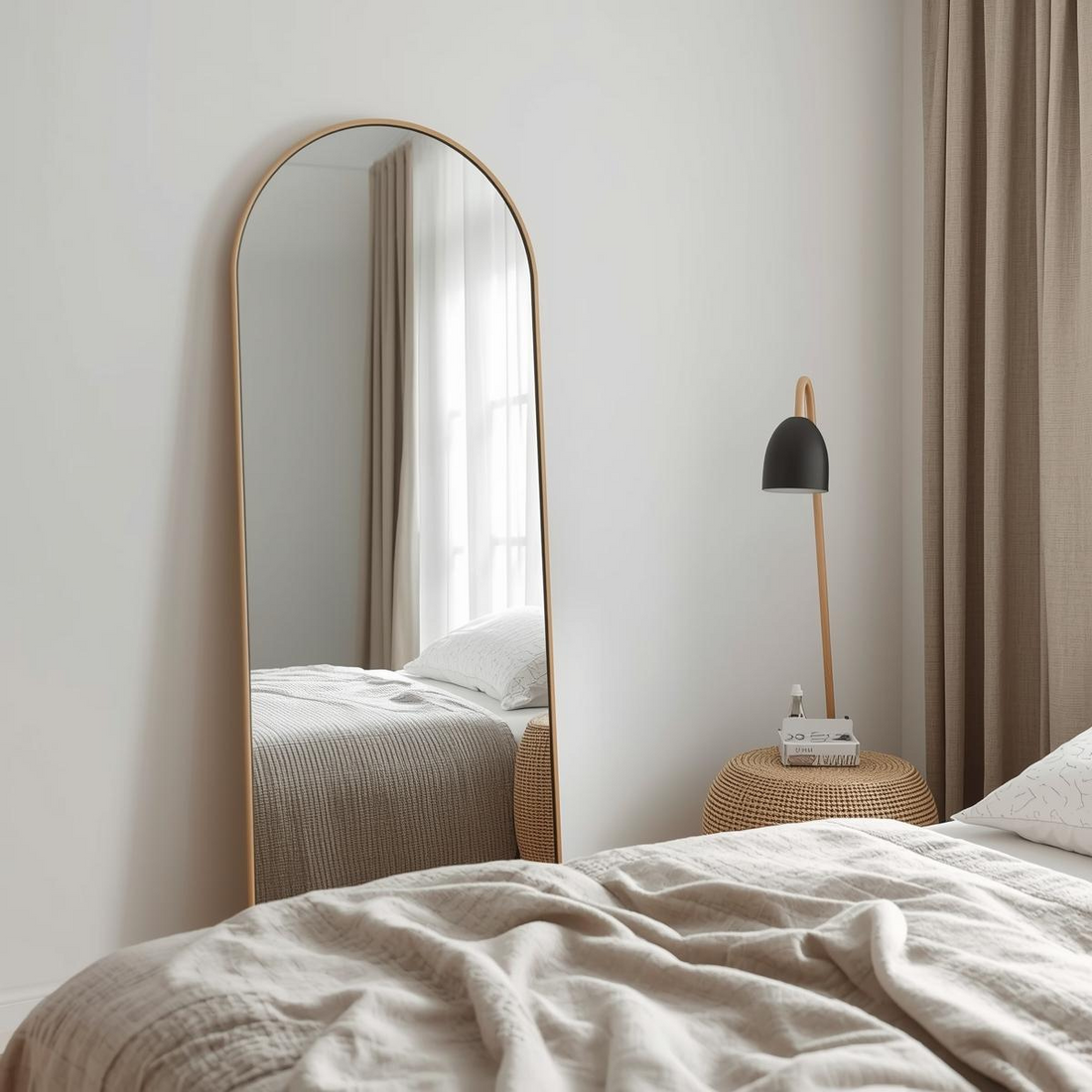
Mirror Placement in Bedroom: Sleep & Style Guide
Share
What is the best mirror placement in bedroom? The answer blends Feng Shui wisdom, sleep science, and interior design. Mirrors expand space and add beauty, but poor placement may disrupt rest.
This blog will walk you through myths, science, Feng Shui guidelines, design psychology, and expert strategies so your bedroom mirrors enhance both style and sleep quality.
Why Mirror Placement Matters in the Bedroom

Mirrors are more than functional—they shape how we feel in a space. In bedrooms, they:
- Amplify natural light
- Make small spaces appear larger
-
Act as a focal décor element
But they can also
- Reflect clutter (increasing stress)
- Bounce light at night (impacting melatonin production)
- Disturb restful energy if poorly placed
Common Myths About Bedroom Mirrors

1. Mirrors Steal Your Soul
This centuries-old superstition comes from cultural traditions in East Asia. It isn’t scientific, but it explains why many families avoid mirrors opposite beds.
2. Mirrors Cause Nightmares
Some believe reflections amplify movement, creating subconscious unease during sleep.
3. Mirrors Drain Energy
A modern internet myth claims reflective surfaces deplete vitality. There’s no evidence, but it highlights how mirrors affect psychology.
Feng Shui Mirror Rules for Bedrooms
In Feng Shui, mirrors are yang energy—active and stimulating. Bedrooms, however, should remain yin—calm and restful. Experts advise:
- Avoid mirror facing bed: Said to bounce Chi (energy) and disturb sleep.
- Reflect beauty: Position mirrors to capture windows, art, or greenery.
- Cover reflective wardrobes: Curtains, screens, or sliding doors reduce nighttime reflection.
The Science of Sleep & Mirror Placement
Modern research supports some of Feng Shui’s cautions:
- Light Reflection: Mirrors can amplify glare from streetlights, devices, or alarm clocks, suppressing melatonin.
- Movement Perception: Half-asleep, reflections may trigger micro-awakenings.
- Psychological Comfort: Many people feel uneasy “being watched” by a reflection at night.
Best Practices for Mirror Placement in Bedroom
1. Side Walls
Ideal for creating depth and brightness without reflecting sleepers.
2. Above Dressers or Vanities
Classic, functional, and safe—avoids nighttime reflections.
3. Inside Closet Doors
Hidden when closed; offers utility without disruption.
4. Opposite Windows
Excellent for brightening—but avoid if the window and bed align.
Styling Tips for Sleep-Friendly Mirrors
- Frame Smartly: Upholstered or wooden frames reduce harshness.
- Glass Choice: Smoked or antique mirrors soften reflections.
- Balance Textures: Pair reflective furniture with rugs, curtains, and bedding.
- Manage Lighting: Use warm LEDs and dimmers to minimize glare.
Design Psychology: Mirrors & Mood
Mirrors influence not just aesthetics but mental state:
- Positive Effects: Expand space, add elegance, and uplift mood.
- Negative Effects: Poorly placed mirrors may heighten anxiety or reduce privacy.
- Balanced Placement: Reflect natural light, art, or plants for harmony.
Conclusion
Mirror placement in bedroom is about balance.
- Use Feng Shui if energy flow matters to you.
- Apply sleep science for better rest.
-
Follow design psychology for comfort and style.
The right placement lets mirrors reflect beauty—not stress—turning your bedroom into a restful and elegant sanctuary.
FAQs About Mirror Placement in Bedroom
What is the best mirror placement in bedroom?
Side walls, above dressers, or inside closets—avoid mirrors directly facing the bed for restful sleep.
Is a mirror facing bed bad?
Feng Shui discourages it, and sleep experts note reflections may disturb rest. Cover or reposition if necessary.
How can I use mirrors in small bedrooms?
Place mirrors opposite windows or on closet doors to maximize light and create space without reflecting the bed.
Do mirrors affect sleep quality?
Yes. Reflected light and movement can cause micro-awakenings and disrupt deep sleep.
Should mirrored wardrobes be covered at night?
Yes, if they reflect the bed. Curtains or sliding panels are practical solutions.
